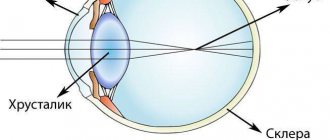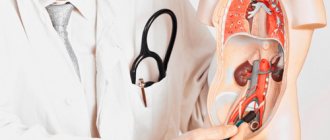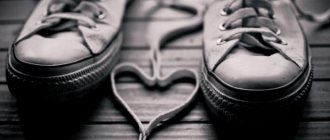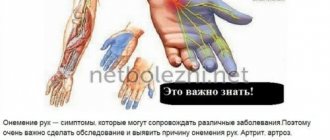Slowness and forgetfulness are two different things
Let's start with the good news: the memory of a relatively healthy elderly person, according to gerontological experts, is in no way inferior to that of younger people.
An elderly person can also successfully perceive, process and reproduce information, says the director of the ANO Scientific Research Medical Professor Kirill Proshchaev, although some slowdown in the speed of thought processes is possible.
Kirill Proshchaev. Photo: vk.com
It is known that, for example, in electronic games, older people are not inferior to young people, but not due to reaction speed, but due to a more effective strategy.
The speed of retrieving information from the desired “cell” of the brain is not a property of memory, experts explain, but the speed of reactions, which objectively slow down with age. There is nothing wrong with this: older people have nowhere to rush and uncritically, now or in 5 minutes a person will remember the name of his favorite actor.
The so-called “benign senile forgetfulness” refers to normal age-related processes when a person forgets something, but this does not affect his quality of life.
“The grandmother forgot her granddaughter’s phone number, but she knows where it is written down, she can find it and call her granddaughter,” the expert gives an example. “But memory impairments that reduce the quality of life are manifestations of diseases.”
Popular techniques
The exercises proposed by experts to strengthen memory develop memorization, storage, and reproduction of information. The most popular methods include:
- Table of the German psychotherapist Schulte . The memory training exercise involves memorizing and recreating numbers placed in random order in a 5˟5 table.
- Mnemonic techniques . Based on memorizing words (not logically related to each other) using associations.
- Method of the Russian artist Aivazovsky . Exercises for training memory and attention include looking at a landscape for five minutes and reconstructing its smallest details with your eyes closed.
- Presentation . During classes, the elderly person is asked to retell the text he has just heard (orally or in writing).
- Precise and fine movements (motor skills) of the hands and fingers . For example, modeling from plasticine, fastening buttons, knitting. Such brain training exercises help you concentrate and coordinate the actions of your hands and head.
- Verbal counting . During class, an elderly person needs to quickly count out loud to one hundred and back. You can add simple mathematical calculations. Voicing information increases the activity of the left hemisphere of the brain, which is responsible for text and speech.
- Memorizing poetry . The easiest and most effective way to train your memory.
“Gymnastics for the brain” does not require material costs; most exercises are suitable for bedridden patients. All you need is time and desire to practice.
Diagnosis is important
Photo from emaze.com
Relatives of the elderly, however, according to gerontologist, president of the Good Deed Foundation for the Elderly Eduard Karyukhin , often cannot distinguish normal memory from pathology, which becomes a source of problems and errors.
Therefore, if you notice memory problems in your grandmother, you should definitely involve specialists in diagnosis. A timely and correct reaction to noticed changes can play a positive role.
So what happens to our memory in our silver age? Why does memory “fade” and how to help preserve it, how to maintain it in “combat readiness”? What should the elderly person or his family do if this is no longer possible?
Potential Risks
Like any organ, the brain wears out as it ages. Interneuron connections weaken, the number of nerve cells decreases. The neurodegenerative process is aggravated by:
- chronic diseases associated with circulatory disorders;
- psycho-emotional overload;
- sleep disorder;
- physical inactivity;
- poor nutrition.
Exercises that develop memory are especially important for patients with atherosclerosis, diabetes mellitus, cardiac pathologies, and neurological diseases. If an elderly person is bedridden, activities to improve memory should become an integral part of patient care.
How to avoid starting a fire due to forgetfulness: 10 tips from a psychiatrist
Photo from the site betterhealthwhileaging.net
Many people have probably heard stories about clothes burning under the iron or milk running away from elderly relatives. For older people living separately, this happens while they are in the room watching TV or answering a phone call in the hallway. Our neighbor in the countryside burns out a couple of boilers during the summer season (they heat water for washing dishes), while she, while waiting for heating, “briefly” goes out into the garden or exchanges “a couple of phrases” with her neighbor.
How to avoid such situations?
American researcher Danielle Lapp has devoted more than 10 years to studying memory and its training at the Department of Psychiatry and Psychological Sciences at Stanford University. In her book “Improving memory - at any age” (Moscow, “Mir”, 1993) she notes that in older age, a change in the rhythm of life and a narrowing of the scope of activity often lead to memory problems.
She gives the elderly 10 recommendations , based on the physiological characteristics of the body of an elderly person during normal aging:
- Avoid fatigue to maintain reaction speed
- Compensate for possible changes in sensory functions (vision, hearing, taste, smell, touch) and a decrease in the ability to perceive (sit closer to the interlocutor or TV, ask the interlocutor again, look at pictures with a magnifying glass, etc.).
- Change your activities and take breaks to maintain your concentration.
- Avoid external interference that may interfere with memory (read without a working TV or radio, when filling out documents - do not have conversations).
- Find out if your memory loss is due to heredity.
- Focus on one thing at a time (multi-tasking leads to forgetfulness, stress, and cardiovascular disease).
- Explore new areas instead of chewing on the old and going deeper into it.
- Make sure the medications you take do not have side effects that cause drowsiness or confusion.
- Stop being afraid of “falling into childhood” and “going crazy” - senile dementia occurs in only 12% of people over 65 years of age, and everyone who is concerned about the state of their memory is definitely not affected by it.
- Eliminate haste.
Exercises for training memory and attention in adults
The following techniques are intended for people who are interested in answering the question of how to improve brain activity:
One of the most effective exercises that promote memory development in adults is memorizing objects. It is better to do it in pairs with a friend. He should place several items in front of you (it can be anything). They must be memorized within 30 seconds. Then you turn away and your partner removes one of the items. You need to determine what exactly is missing. To make the task more difficult, things can be swapped.
You need to write 12-15 numbered words (different in meaning and topic) and try to remember them within 45 seconds. After this time, you need to write the words, observing their sequence.
Exercise "Stranger" will help improve memory in adults
In any public place (queue, transport, etc.) pay attention to a stranger, look at him for five seconds, then look away and try to remember the details of his appearance and clothing. If you can remember 10 elements of a person’s image, this will be considered a good result.
Using the Aivazovsky method improves photographic memory and brain function
You need to study a picture for 5 minutes, carefully looking at the details. Then, you need to close your eyes and reproduce what you remember in your memory in the smallest detail. For best results, memorized objects can be transferred to paper.
Make up stories. This exercise is necessary for memorizing any lists, numbers or names. Here you will need to use your imagination. It is necessary to come up with a simple plot, a fairy tale, where the necessary data will be present in a logical sequence. Vivid images and associations will help you remember the necessary information.
More activity means more fuel for the brain
Photo from sciencedaily.com
Daniel Lapp also points out that a number of emotional and psychosocial changes occur in older adults as part of normal aging. These are changes in the environment (moving, for example), retirement, loneliness (children grew up and began to live separately), loss of loved ones, depression, general mood of the individual (despair, feeling of helplessness, underestimation of one’s capabilities).
Thus, Lapp explains, after retirement, there are fewer rewards and incentives to maintain attention at the same level.
There is less communication, information, and activity. And this means that less and less “firewood” is being thrown into the brain—new information and knowledge that would initiate—“ignite”—active thought processes and activate memory.
Therefore, older people with normal memory, not altered by pathology, need to make efforts to maintain and train it. The above factors are related to the directions in which older people themselves and their relatives need to act in order to improve their memory capabilities during aging. Namely, to train attention, limit external interference, relearn how to structure what you see, hear, read for easier memorization, etc.
Recommendations for improving memory
In addition to sports and an optimal diet, what else is worth doing to improve memory after 40 years:
- Memory needs to be used. Studying a foreign language, being interested in logic problems, solving Sudoku - everything that activates the hemispheres of the brain, encourages memorization, recall, and reflection. Any activity that requires you to comprehend a significant amount of information will have a good effect on your memory.
- During periods of activity, it is worth organizing short moments of rest every hour. It is recommended to get up, move around the apartment, and do exercises. In this way, the hemispheres of the brain are reorganized from one type of work to another, and this benefits their activity.
- It is necessary to avoid shocks and upsets, because they lead to loss of nerve cells, and because of this, concentration begins to weaken and the ability to remember is impaired. Regular lack of sleep also affects the body. In order for the brain hemispheres to rest well, you need to get enough sleep every day.
- An organizer can help with poor memory. It is worth recording significant days and planning things. This makes it possible to relieve the stress on the brain.
- Turning to fiction is a great way to train your memory, because at these moments visual memory functions and rational, imaginative and abstract thinking improves. However, to improve the quality of the ability to remember, it is important not just to read, it is worth doing it correctly, with a story about what you have become familiar with, because people best exercise their memory in those moments when they remember the book they have become familiar with!
- It’s good to remember the personalities of the leading characters and their inclinations while reading. When you read the work, remember all the twists and turns of the plot. These activities will be beneficial for your memory ability.
- Very talented people are characterized by close attention to detail; they are able, having met strangers, to instantly discern many small features and record them in memory. A talented person is a person with a perfectly functioning brain. In this regard, to develop memory after fifty, you need to use this method for special people and make efforts to increase your attentiveness. For this purpose, you should examine the item you have chosen quite carefully, and, having noticed its details, try to remember them later. Develop such a good habit.
- Memorizing poems is an exercise that has a beneficial effect on memory at any age. Take any author you like and study all his works by heart. Next, remember often.
- Music training has a positive effect on the functioning of the cerebral hemispheres. In old age, you can practice singing, individually or in a choir, or learn to play a musical instrument you like, or do both. During rehearsals, memorizing texts, musical notation, studying the unknown, the hemispheres of the brain will actively function, which will have a good effect on the ability to remember.
- Be mindful of your state of mind as well. People after fifty are more prone to depression than others, and this leads to weakening of memory. Suggestions such as: “I’m too old to study new subjects,” “After thirty-five (forty-five, fifty-five, etc.) I don’t see the point in changing anything in my life,” and the like, not only lead to a decrease in self-esteem, but also indirectly lead to a weakening of the ability to remember.
- In this regard, you need to set yourself up correctly. Realize that after fifty, life does not end, but only gains momentum - you raised children, left work, have a pension, it’s worth living happily!
- Developing memory in adults is a creative matter. It is always useful to study the methods of mnemonics (mnemonics) - the science of facilitating memorization by creating associations, replacing memorized objects and data with known judgments and ideas.
Time Drawing Test
Photo from insideedition.com
Pathological damage in older age, as a rule, leads to mild, moderate and severe dementia, which is accompanied by about 50-60% of cases of Alzheimer's disease (with this disease, the amount of acetylcholine in the brain, necessary for functioning, is greatly reduced memory).
Dementia has become very “younger” these days and is increasingly occurring in people aged 40-50 years.
All experts call for prevention, and the problem of memory in the elderly is being actively studied both in Russia and in the world.
“Entire national strategies are being developed to prevent and combat dementia, where the emphasis is not only on finding effective drugs for the treatment of memory disorders, but also on methods of early diagnosis,” says Kirill Proshchaev. — Ideally, every person should be familiar with the method of early screening for memory disorders.
For example, you can test your elderly relative at any time with a clock drawing test.
The test is quite simple and allows you to see the problem at an early stage, and therefore take timely action. Invite your relative to draw a circle, mark it with numbers in the same way as a clock dial, and use the large and small arrows to indicate the time “ten minutes to eleven.”
“If your loved one could not depict the time correctly, or even worse, could not even mark the dial correctly, take him to a doctor - a neurologist, psychiatrist, therapist, who will figure out the reason for not completing the test,” recommends Professor Proshchaev.
How to improve a teenager's memory. How to develop memory in a teenager
If a teenager has poor memory, it is necessary to exclude a neurological cause for this deficiency. To do this, you need to visit a doctor, otherwise any measures can only do harm. If there are no medical reasons for this, then you will have to make a lot of effort to develop memory.
Instructions
1
One of the best ways is to memorize poetry and prose. Start with small poems or passages, gradually increasing the size of the text and making it more complex. Prose is more difficult to learn, so it is worth moving on to it when the teenager has already mastered poetry. It is necessary to check how long what you have learned remains in your memory. Does he remember two days later? And in a week? And in a month?
2
Two more ways to develop memory are traditional school presentation and retelling. Let the teenager retell to you an article he read or a chapter from a book, close to the text. Or he will write a presentation, trying to use as much vocabulary from the text as possible and respecting its structure. If you do this regularly, not only your memory will improve, but also your speech.
From the editor: Symptoms, causes and treatment of dysarthria in children
3
In addition to these traditional ones, there are also special exercises for the development of memory, both visual and auditory. For example, say any 10 words that are not logically related to each other and ask the teenager to repeat everything he remembers.
4
To train your auditory mechanical memory, say 10 three-digit numbers quickly. The teenager must repeat them. In this, as in the previous exercise, 6 reproduced words or numbers are considered the norm.
Helpful advice
Now there are no problems with materials and aids for memory development - neither online nor in bookstores. If you are not confident in your abilities, you can turn to specialists - psychologists and teachers.
Reminders for those who live alone
Photo from ascseniorcare.com
When considering various aspects of memory in old age, experts divide older people into 4 groups. A different approach is recommended for each of them.
These are two groups with normal, intact memory - those living alone and living in a family , and two - with memory pathologies - severe damage / mild dementia .
Elderly people living alone who have relatives can be helped by a system of “reminders,” recommends Kirill Proshchaev.
“There are many such methods: a phone call, a reminder on a mobile phone, notes in accessible places. For example, near the door in the corridor you can hang a small beautiful poster: “Dad, close the door,” the expert explains.
(By the way, the son of the aforementioned neighbor in the country has already drawn and placed a poster on the door: “Did you turn off the boiler?”)
Nutrition
With poor nutrition, an unhealthy lifestyle and lack of brain activity, there is a risk of losing memory altogether. But if a person tries to live correctly, loading the brain and body, and also eats well, then there will be no problems with remembering information. It is necessary that the diet includes all essential vitamins (B1, B2, B3, B6, B12, C, E, D). How to strengthen memory in old age with food, what to eat:
- Fish (salmon), fish oil,
- Meat (chicken, turkey),
- Walnuts, pumpkin seeds,
- Chicken eggs,
- Groats (buckwheat), grains, bran,
- Milk, cottage cheese, kefir,
- Tomatoes, cucumbers, carrots, cabbage,
- Blueberries, prunes,
- Ginger, figs, cinnamon, pepper, cloves.
From the editor: The use of mnemonics for memory development
If you constantly eat healthy foods, repeat memory development exercises, and be physically active, this will be enough to preserve your brain. The aging process will slow down significantly.
Find supplies of medicines and check everything
Grigory Gorshunin.
Photo from doctorgor.com Geriatrician and gerontologist-psychotherapist Grigory Gorshunin notes that lonely older people, left to their own devices, sometimes take medications uncontrollably - increase or decrease their dose, take medications that they once took and that once helped them - “by inertia”, they drink them after the expiration date.
“It is necessary to remove all caches of medications - at least for inspection - and return only those that are suitable and comply with the latest doctor’s prescriptions,” advises Gorshunin. “If an elderly person has relatives and they see that their grandfather or grandmother is confused with medications, it is better to take the medications from her/him and personally put them in a special box for the day, as is done in a hospital.”
Beacon for Grandpa
Photo from the website lunner.kommune.no
For elderly people living separately from their relatives, services have already been introduced in the world and in our country that track the position of an object. One of my 85-year-old acquaintances from France wore such a “beacon” on his chest at home, in his garden and on the street, equipped with an alarm button so that in the event of a fall, memory loss, or heart attack, he himself or the people who found him could signal an incident .
Eduard Karyukhin believes that modern monitoring tools make it possible not to limit the freedom of the elderly by overprotection.
“You can monitor the condition of your elderly relative by calls, use feasible forms of video monitoring, and also connect a so-called “panic button,” the expert recommends. “Moreover, such devices are quite affordable for the family and working children of an elderly person: now in Yaroslavl, for example, a device with a “panic button” can be bought for about 5.5 thousand rubles.”
Don't leave them alone, don't lock them up
Photo from catholicireland.net
Relatives of people with memory pathologies have the hardest time. Household members who are not ready to communicate with a person with “lapses” in memory or constant forgetfulness may experience nervous breakdowns and depression. I'll tell you a real story.
An elderly man, 79 years old, returned home from his dacha. The next morning, he woke up and began to find out where he was. Then he asked to inform his wife (who died 10 years ago) that he had already returned, so that she would come for him and take him home. Strange behavior appeared one after another. After lunch, after an hour and a half, he complained that he was “hungry like a dog” and asked for “at least a piece of black bread.” From time to time I wondered if the toilet was closed at night. When no one was in the kitchen, I ate directly from the pan on the stove. I hid forks and spoons under my pillow after meals. I didn't know how to turn the TV on and off. Although he washed the dishes after himself and did not forget to flush the toilet.
A psychiatrist invited home prescribed two medications - “for good sleep” and to improve cerebral circulation. The drugs worked: lost memories and... hyperactivity began to appear. Grandfather asked his family the same questions several times a day (sometimes every 3-5 minutes), rushed back and forth around the apartment like a pendulum, and shook the bed and mattress two or three times a day. Having taken the keys of his son or granddaughter, he heatedly proved to the household that he had not taken anything, was indignant that he was being “accused,” and waved a stick at the offender. Grandfather slept poorly - he scurried around the house at night, causing anxiety to the whole family. Six months later, the family was already mentally and physically exhausted. Grandfather died in his sleep from heart failure 7.5 months after the disease manifested itself.
Such a patient, notes Grigory Gorshunin, should absolutely not be left alone at home. If this has to be done, you need to turn off the gas and water, and block the balcony doors.
“However, it is not advisable to lock such a patient in an apartment,” the expert shares his experience. “There have been cases when people with dementia, being in a controversial state, started screaming out the window so that the police came.”
Six recommendations for relatives of such patients:
- Treat the underlying disease
- Streamline your routine: wake you up and feed you at the same time - it will make life easier for a person
- Place a note in the patient's pocket or on the patient's chest with the name, address and telephone number of relatives, and also note that the person is suffering from memory loss
- Maintain the skills the person demonstrates - peeling potatoes, washing dishes, going for a walk if possible
- When listening to an old man, avoid expressing disagreement - it causes irritation, which aggravates his condition.
- Maintain communication, help remember facts from his life, take an interest in his well-being, invite other loved ones (children, grandchildren) to him, that is, promote positive emotions and expand his social circle
What stimulates memory
Photo from dovemed.com
All experts urge you to devote time and attention to memory training activities.
“Any positive activating things - a beautiful environment, new impressions, the absence of a confined space, communication, physical activity, etc., as well as good sleep are means that stimulate memory function,” notes Kirill Proshchaev.
Experts consider acquiring new knowledge to be the best way to prevent forgetfulness.
“Creative activities, reading, learning foreign languages, and any acquisition of new information will help maintain memory in a normal state,” advises geriatrician Grigory Gorshunin.
By the way, one of the studies conducted in 2013 by specialists from the Nizam Institute of Medical Sciences in India, according to Wikipedia, found that using two languages can delay the development of dementia. An analysis of 648 cases of dementia found that bilinguals developed dementia an average of 4.5 years later than monolinguals.
Memory is also positively affected by mastering new computer and technical innovations - using bank cards, learning to work on the Internet, and also, if possible, continuing professional activities.
Gerontologist Eduard Karyukhin talks about the importance of all types of activity - physical, mental and social.
How to preserve memory and intelligence in old age
Old age is accompanied by completely natural biological processes of gradual decline of memory, attention, and, with them, intellectual activity. However, there are some very simple ways you can use to maintain mental alertness in old age.
First of all, this concerns physical activity. For older people, physical activity is no less beneficial than for younger people, especially in the fresh air. Walking, physical education and sports, including Nordic walking, which has become popular today, are associated with the so-called “gross motor skills,” that is, with the movement of the arms, legs, and body. Any movements cause the brain to work actively, stimulating the functioning of cells and maintaining connections between them.
By making movements with your fingers, a person uses fine motor skills, and at the same time stimulates the speech center of the brain, which is located next to the center of fine motor skills. Doing handicrafts (drawing, knitting, embroidery, papier-mâché, lace weaving, sewing, modeling), as well as working at the computer or playing musical instruments, stimulates several parts of the brain at once. Fine motor skills are also involved in normal everyday life in the process of preparing food and washing dishes. To feel cheerful and full of energy, doctors recommend adhering to the principles of proper nutrition, providing the body with vitamins, minerals, and trace elements. Eating four to five times a day, without overeating before bed, drinking enough liquid - up to two liters (if there are no restrictions).
Nutrition in old age should be energetically balanced, as varied as possible, aimed at preventing atherosclerosis: eating up to 500 grams of vegetables and fruits per day, reducing salt (less than five grams of salt per day), reducing or completely abstaining from sweets (sugar, sweets, cookies ).
It is recommended to eat bread made from wholemeal flour; porridge made from oatmeal and buckwheat is preferable. To keep your blood vessels in order, the menu should be dominated by fish and poultry dishes and limited in “red meat” products. It is better to use vegetable oil for dressing salads. It is also recommended to eat cottage cheese, fermented milk and seafood. When processing food, baking, boiling, and stewing should be used to preserve vitamins and minerals, as well as better digestibility of food.
Quitting smoking and minimizing alcohol consumption have a significant impact on the preservation of memory and intelligence in old age. It has long been known that alcohol causes great damage to brain cells, killing hundreds of thousands of them without recovery.
Intellectual exercise in old age is more important than ever. As many people age, memory noticeably deteriorates. But if you constantly train it, then these processes will noticeably slow down. In addition, in old age, when there is enough free time, you can devote it to a variety of interesting and exciting activities for which you previously did not have enough time. Any activity will be useful: learning foreign languages, doing science, memorizing poems, learning songs, etc.
In our region, a lot is being done to improve the health of the elderly. Annual medical examinations and medical events allow systematic monitoring of risk factors for the development of chronic non-communicable diseases.
At the Penza Regional Hospital for War Veterans, a geriatric department has been established and a geriatric center has been opened to provide medical care to elderly and senile patients. The purpose of these structures is to preserve or restore the elderly person’s ability to self-care, physical and functional activity, and independence from outside assistance in everyday life. Health trails and Olympic Alley are open to Penza residents. Culture and leisure centers offer special dance classes for the older generation; you can sign up for any swimming pool or sports complex. Some retirees attend various clubs and circles for older people, creative studios, and veterans' choirs.
Of course, communication is an excellent form of maintaining the intellectual activity of an elderly person. The social circle of older people who have retired is shrinking sharply. However, it can be expanded significantly to include new people.
It is clear that in recent years there has been a shift in ideas about successful aging, which includes psychological, physical and social health, as well as life satisfaction, a sense of purpose, financial stability, spirituality and much more. Even at a very old age, people can retain the need for an active life.
Regular exercise allows you to stay in good shape and delay the appearance of changes associated with age. And this applies to all organs of our body, including the brain.
In conclusion, I would like to offer some advice from the book of American neuroscientist Lawrence Katz, who developed a whole system of brain exercises to preserve its functions into old age:
- train your non-dominant hand by performing familiar rituals with it, such as brushing your teeth, combing your hair;
- take a shower and perform other normal activities with your eyes closed;
- change the route when getting to work, the store and other usual places;
- watch the video without sound, trying to understand from gestures and movements what is being said.
I would like to wish all Penza residents good spirits and optimism for a long and fulfilling life, including in old age.
Exercises to keep your mind clear can be found here.
Monitor your sugar levels
Photo from healdove.com
Paying attention to the psychological and social aspects of the life of an elderly person, it is necessary to constantly monitor physiological indicators - pressure and blood biochemistry.
“It’s very important to monitor your sugar levels,” says Gorshunin. — Blood sugar levels above normal lead to lethargy and drowsiness of a person, and it is very difficult to relieve mental problems. It is also worth paying attention to homocysteine and cholesterol, a persistent increase in which over a long period of time increases the risk of cardiovascular diseases in the elderly, and therefore demented memory impairment.”
He noted that these indicators need to be monitored either by the elderly person himself or his relatives. Those who have had a heart attack or stroke are recommended to take lifelong antiplatelet medications that thin the blood for better nutrition of the brain.
Kirill Proshchaev drew special attention to the fact that only a doctor .
“There are drugs of various groups, the doctor focuses on the causes and degree of memory loss and selects the drug depending on the mechanism of action and the presence or absence of side effects in the patient,” he explained.
Stick to a diet
- Cut down on refined carbohydrates. The body quickly digests baked goods, candy, carbonated drinks, white rice, etc. This leads to a sharp increase in blood sugar, causes obesity, dementia, and reduces cognitive function.
- Eat more fish. Fish oil is a source of omega-3 acids, which are beneficial for brain function.
- Include seafood, nuts, and grains in your diet. They contain a lot of fatty acids and microelements.
- Eat more vegetables, fruits, berries. The body needs fiber and vitamins, and antioxidants protect brain cells from damage and support mental activity.
- Avoid saturated fats (red meat, whole milk, butter, cheese, cream, ice cream). Increase the risk of developing dementia, reduce concentration and memory.
- Drink green tea. Contains antioxidants that protect brain cells, improve memory, and slow down aging.
- Love turmeric, which reduces inflammation, amyloid plaques in the brain.
- Drink cocoa. The drink improves memory performance. Choose 70% dark chocolate to get your antioxidant dose.
If there is love, but no overprotection, then the memory is stronger
Photo from earth.com
An elderly person is immersed in society, which greatly influences his personality and all areas of his life - physical, psychological, spiritual and social, recalls Eduard Karyukhin. And family relationships play a special role.
As observations have shown, in order to maintain self-confidence, activity and memory of an elderly person, the position of relatives is extremely important.
“If an elderly relative does not have any special disabilities, they should not allow overprotection towards him,” the expert emphasizes. — Normal aging should not cause alarm, special attention when dysfunctions manifest themselves - mental, social, physical. Old age requires respect and an adequate emotional attitude from the relatives themselves.”
Neighborhood with old people, according to the expert, is a kind of test for society and a test for each of us. “In conditions where the old man in the family is subject to stress, violence, and shouting, his memory disorders worsen,” explains the expert. “Stress has a very strong impact on any person, but on the elderly it has a stronger effect, seriously worsening adaptive properties.”
When older people are given more attention and respect, they become more empowered and reach their full potential.










